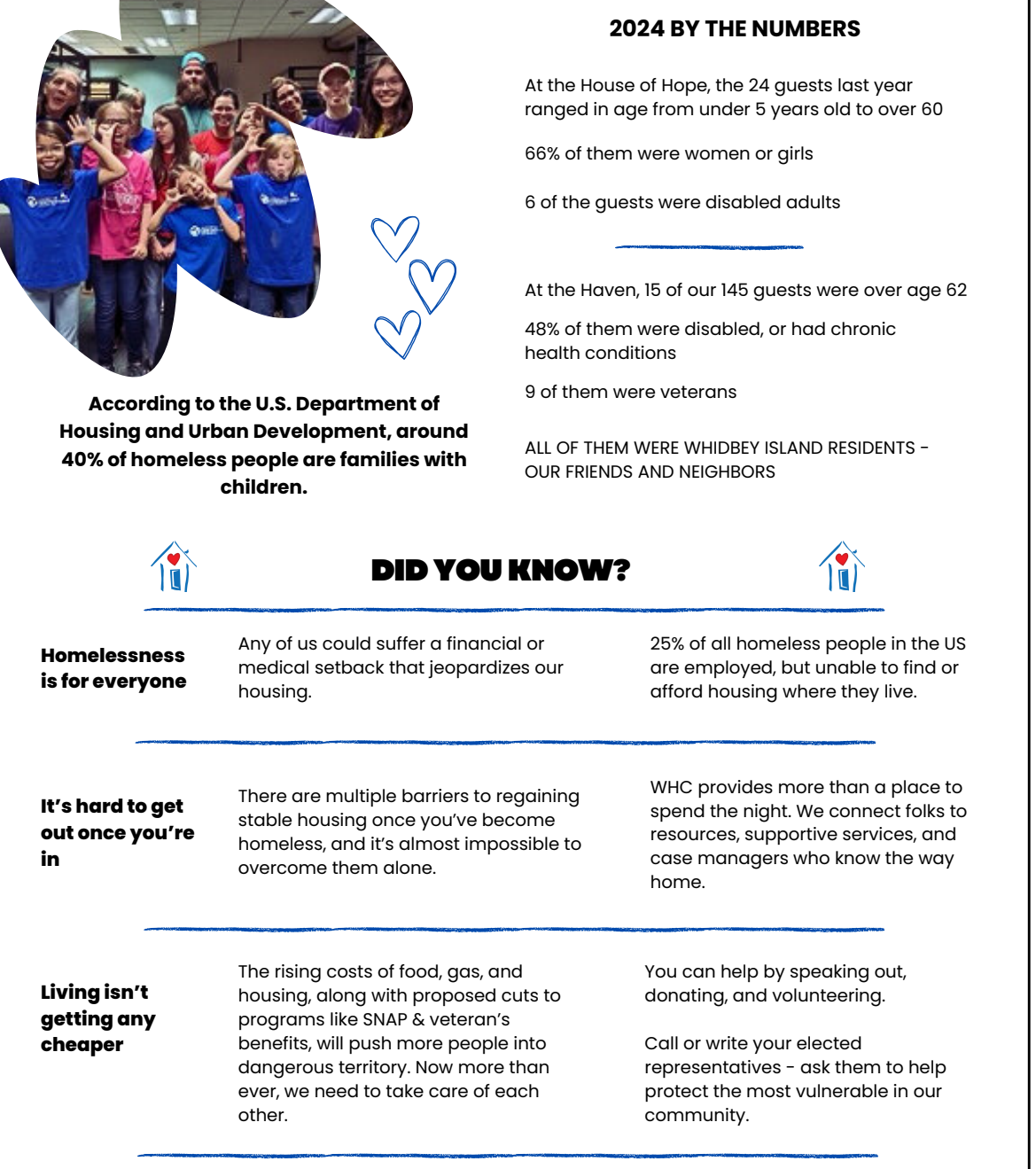Dear Friends and Supporters,
At The Haven, we’ve been operating at full capacity—30 guests per night—for over a month, and we expect this need for shelter to continue. In 2025 alone, The Haven has welcomed 127 unique individuals, offering safety, stability, and a path forward. Of those, 20 guests have transitioned into permanent housing, and 6 have successfully completed treatment programs. These milestones are a testament to what we can achieve together.
Meanwhile, at The House of Hope, we’ve supported 8 households this year — 11 adults and 10 children—with shelter, care, and a renewed sense of possibility.
As 2025 draws to a close, we find ourselves reflecting on a year of resilience, growth, and hope. While the year has had its challenges, we’re ending the year on a high note, thanks to the unwavering support of our local community.
With your help, we are moving forward with exciting improvements to our programs. We're expanding our septic system, unlocking new possibilities for growth and increased sustainability—ultimately elevating the quality and dignity of our services.
Every number tells a story. Every guest represents a life touched, a future reclaimed, a family restored. And none of it would be possible without you.
As we look ahead to 2026, we invite you to be part of the next chapter. Your year-end gift will help us continue to provide essential services, expand our capacity, and deepen our impact. This year, your gift will go even further, thanks to a generous matching donation of $10,000 from a community member. That means every dollar you give becomes two dollars towards ensuring that more individuals and families find the hope, healing, and home they deserve.
You can give online at www.whidbeyhomeless.org/donate, or by mail at:
Whidbey Homeless Coalition
PO Box 453, Langley WA 98260
Thank you for standing with us. Your generosity fuels our mission—and changes lives.
With gratitude,
The WHC Board of Directors:
Bobbi Lornson, President
Brandi Blais, Vice President
Lydia Farrell, Secretary
Bob Nelson, Treasurer
Janet Harris, Director
Tanya Stager, Executive Director

Making homelessness a brief and rare experience
on Whidbey Island
Our vision says it all. Homelessness is not a Seattle or an urban issue. Homelessness is everywhere, including here on Whidbey IslandWe provide emergency overnight shelter (through the Haven) and transitional housing (through the House of Hope) that give positive results.Learn more about homelessness, our programs, and the support network on Whidbey Island.


